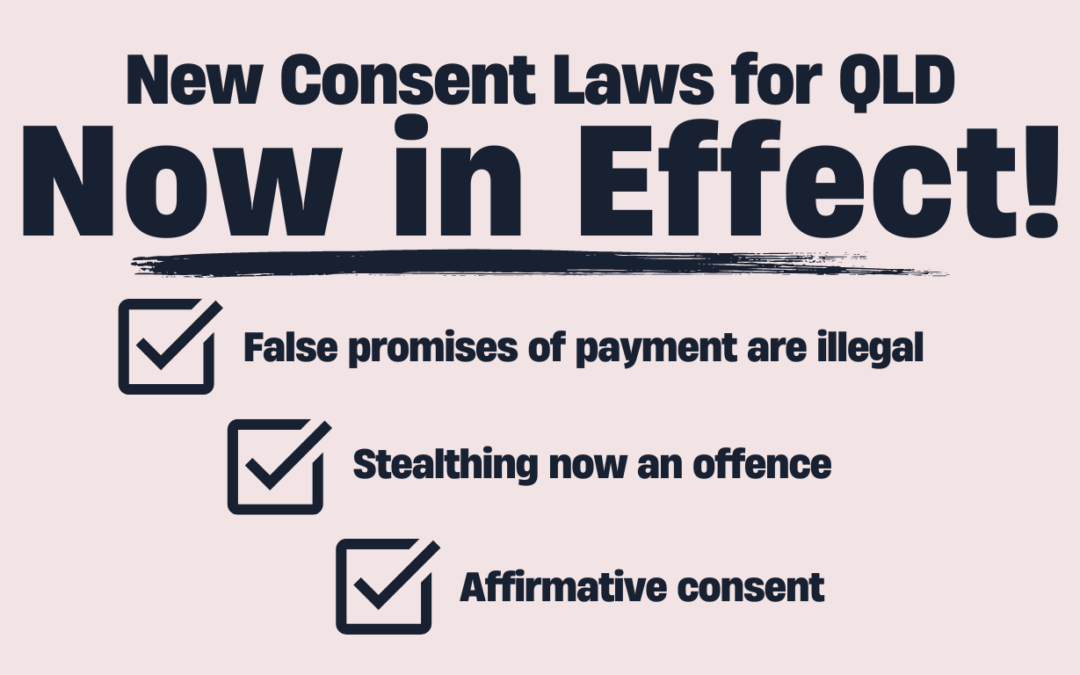As of 23 September, 2024 important changes to Queensland’s consent laws are now in effect. These changes provide more protections for sex workers and an updated definition of consent.
The reforms are designed to protect sex workers from coercive or deceptive practices. Whether in personal relationships or within the context of sex work, the laws state that consent must be voluntarily given for each sexual act. Acts such as stealthing and a false representation of payment are now recognised as sexual assault or rape.
Here’s an overview of the key changes and what they mean for everyone:
What is Affirmative Consent?
Under the new laws, consent means free and voluntary agreement to a sexual activity. In an affirmative consent model, both verbal and non-verbal communication play a part in establishing and respecting consent.
This means that all parties involved in a sexual activity must actively express or show their consent, whether through words, actions, or body language. Silence or lack of resistance are not enough. Consent can’t be assumed just because a person didn’t say “no.” If it’s not clear that someone is consenting, it’s important to ask and make sure.
When There is No Consent
The new laws add scenarios when there is no consent, they include:
- False representation of payment to a sex worker. If a sex worker participates in a sexual activity because of a false or fraudulent representation that they will be paid or receive some reward the act is non-consensual. This includes situations where someone says they will pay later, or gives false payments like reversed bank transfers.
- Stealthing (tampering with, or removing, condoms). If a person agrees to have sex on the condition that a condom is used, before or during the service, any of the following actions are non-consensual:
- Not using a condom.
- Tampering with the condom (for example, purposely breaking it).
- Removing the condom without the other person knowing.
- Continuing the sexual act after becoming aware that the condom has become ineffective without informing the other person.
In these situations, the law considers the act non-consensual, and therefore the action is rape or sexual assault.
Withdrawing Consent
Consent can be withdrawn at any time during sexual activity. If either person changes their mind, consent is withdrawn, and the sexual activity must stop. If someone is unsure whether consent is still given, they must ask or check in. It’s not enough to assume that consent is still given because nothing has been said.
On top of this, judges can now require juries to not assume that a sex worker automatically consented to sexual activity just because they worked as a sex worker.





